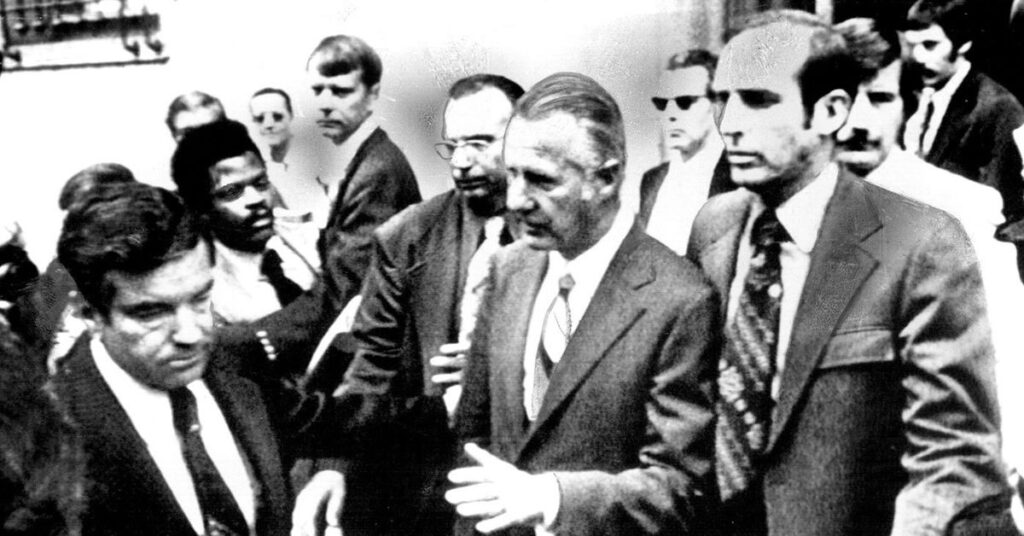
On October 10, 1973, U.S. Vice President Spiro Agnew resigned from office in a dramatic turn of events that reshaped the political landscape of the nation. Agnew’s resignation was delivered to Secretary of State Henry Kissinger at precisely 2:05 PM, just moments before he entered a Baltimore courtroom to plead no contest to tax evasion charges. This plea resulted in a sentence of three years’ probation and a $10,000 fine.
However, the charges of tax evasion were only part of a broader investigation into Agnew’s activities. He was also being scrutinized for bribery, extortion, and taking kickbacks during his tenure as governor of Maryland. In a controversial move, these investigations were dropped in exchange for his resignation, a decision that kept Agnew out of prison but ended his political career.
The Political Calculus Behind Agnew’s Resignation
The resignation of Spiro Agnew was not merely a personal downfall but also a strategic maneuver within the Nixon administration. At the time, President Richard Nixon was embroiled in the Watergate scandal, facing mounting pressure that could lead to his own resignation. If Nixon were to step down, Agnew, despite his legal troubles, would have been next in line for the presidency.
According to reports, a deal was struck between Agnew and the Department of Justice: Agnew would resign from the vice presidency in exchange for leniency in his legal battles. This agreement not only averted a potential constitutional crisis but also set the stage for a significant shift in the U.S. political hierarchy.
Gerald Ford: The Unlikely Successor
With Agnew’s resignation, President Nixon was tasked with appointing a new vice president. The Democratic-controlled Congress, wary of the ongoing scandals, pushed for a candidate who could be easily confirmed and who was untainted by the controversies surrounding Nixon and Agnew. Their choice was Gerald Ford, the House Minority Leader, known for his integrity and bipartisan appeal.
“We gave Nixon no choice but Ford,” House Speaker Carl Albert later remarked, underscoring the political maneuvering involved in Ford’s nomination.
Ford’s appointment was seen as a stabilizing force for the nation. He was regarded as an honorable and uncontroversial figure, a stark contrast to the scandal-ridden administration he was joining. His wife, Betty Ford, reportedly viewed the vice presidency as a fitting conclusion to his political career.
The Aftermath and Historical Impact
Less than a year after Agnew’s resignation, the Watergate scandal reached its zenith, leading to Nixon’s resignation on August 8, 1974. Gerald Ford, who had been vice president for just eight months, ascended to the presidency, marking the first time in U.S. history that an unelected vice president became president. Ford’s first major act as president was to grant Nixon a full pardon, a decision that remains controversial to this day.
Out of office, Spiro Agnew faced further repercussions. He was disbarred from practicing law and struggled financially, relying on loans from notable figures such as Frank Sinatra and the Crown Prince of Saudi Arabia. His fall from grace served as a cautionary tale of political ambition and legal accountability.
Legacy and Lessons Learned
The events surrounding Agnew’s resignation and the subsequent rise of Gerald Ford had lasting implications for American politics. It highlighted the vulnerabilities within the presidential line of succession and underscored the importance of ethical conduct among public officials. The episode also demonstrated the complex interplay between legal proceedings and political strategy, a dynamic that continues to influence American governance.
As history reflects on October 10, 1973, it serves as a reminder of the delicate balance of power and the enduring impact of leadership decisions on the nation’s trajectory.





